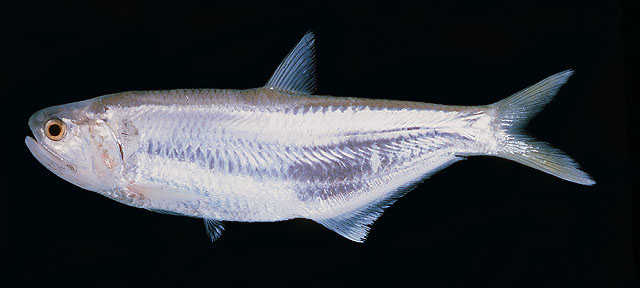| Engraulidae (Anchovies), subfamily: Coiliinae |
| 27 cm SL (male/unsexed) |
|
pelagic-neritic; depth range 10 - 13 m, amphidromous |
| Indo-Pacific: Persian Gulf eastward to Myanmar, Andamans and Penang; Taiwan south to Arafura Sea (Ref. 9819), the northern coasts of Australia and Papua New Guinea; Sarawak; a record from the Bonin Islands; presumably the Philippines; perhaps not eastward to the Hebrides, etc. |
|
Dorsal spines (total): 0-0; Anal spines: 0-0; Anal soft rays: 32-39. Belly with 23 to 26 keeled scutes from isthmus to anus. Tip of snout above level of eye center, usually about level of upper rim of eye. Maxilla short or moderate; first supra-maxilla small, oval. A dark blotch behind upper part of gill opening. |
| Coastal pelagic (Ref. 68964). Presumably schooling, inshore and entering estuaries. More precise data needed, based on correct identifications. If this is the species being referred to in Ref. 6841, then the principal food of the young would be prawns and copepods, supplemented by polychaetes and amphipods. |
|
Not Evaluated
(Ref. 96402)
|
| harmless |
|
Also Ref. 189. |
Source and more info: www.fishbase.org. For personal, classroom, and other internal use only. Not for publication.
Page created by Jen, 05.08.02,
php script by kbanasihan 06/09/2010 ,
last modified by
dsantos, 20/08/10

